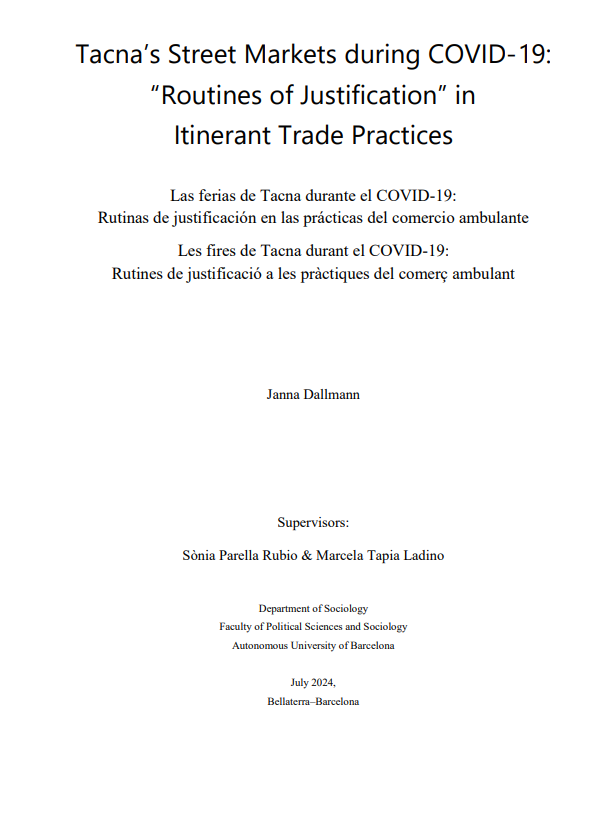Doctoral thesis defense of Janna Dallmann
Tacna’s Street Markets during COVID-19: “Routines of Justification” in Itinerant Trade Practices

Street markets are an integral part of Tacna’s everyday life. Vendors, building their stalls, regularly transform the city’s public space into vibrant and colorful places of exchange. The broad array of products offered makes the phrase “Hay de todo” a standard description for these urban commercial sites.
Feria de la Chacra a la Olla, Feria Boliviana, and Feria del Altiplano operate on the edge between “formality” and “informality.” Although they have municipal permission, this status is the outcome of ongoing negotiation processes and remains temporary. This institutionalized precarity stems from disagreements about the street markets and their vendors’ presence in the city’s landscape. Critiques towards itinerant trade are frequently raised, placing these markets under a constant imperative of justification.
As part of public space, they are of interest to different stakeholders with differing pursuits. Events such as the COVID-19 pandemic expose the fragility of existing agreements. Changes in the “situation” require renegotiating the righteousness of itinerant trade practices.
The thesis aims to understand how stakeholders reached agreement regarding the continuation of itinerant trade practices. Therefore, it employs practice theory approaches and the “orders of worth” framework within an abductive research design, using newspaper analysis, qualitative observation, and interviews for data collection.
It analyzes the main conflicts and respective arguments brought forward, examining how these manifest in individual accounts, collective ways of staging protests, and “routines of justification” in everyday market life. The contrast with a former event with similar effects—planned construction works that led to the relocation of one of the city’s biggest street markets—allows for pinpointing continuities and differences in the patterns of “critique” and “justification.”
It concludes that the righteousness of itinerant trade practices is simultaneously questioned and (re-)produced in the everyday dynamics in and around Tacna’s street markets. Actors negotiate legitimacy not only in times of crisis but also in everyday life through critique and “routines of justification.” The disputes about street markets are ongoing instances where stakeholders negotiate about common “values” and their hierarchies, about what should be considered “good” and “right.”